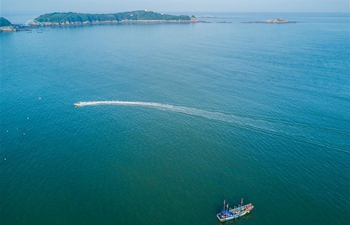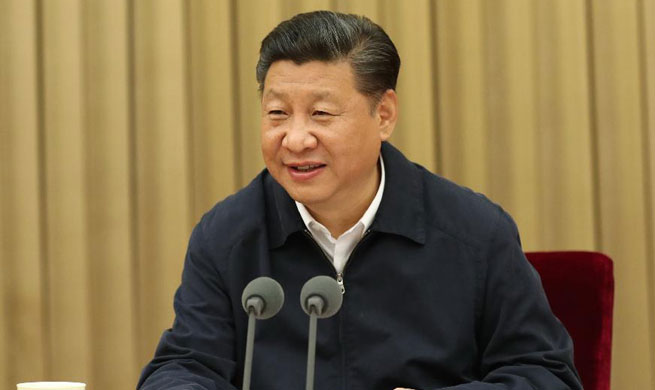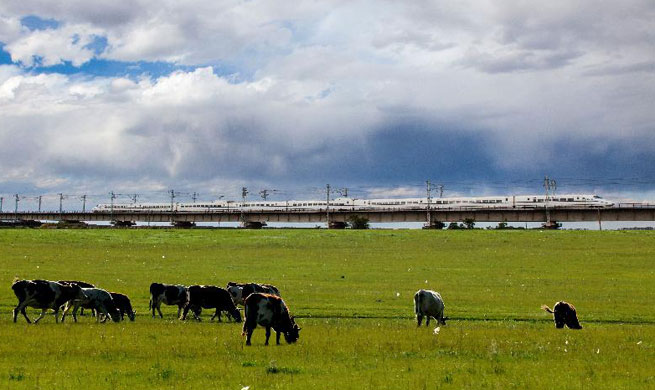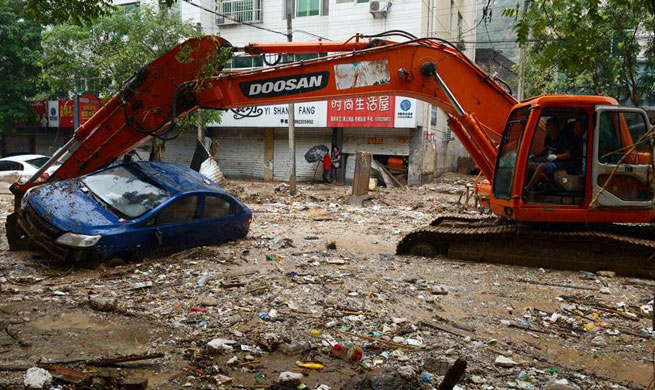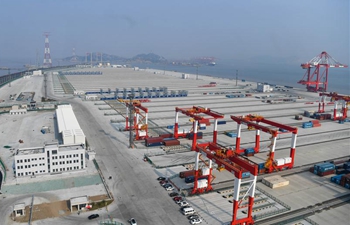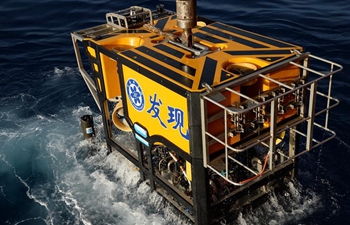NAIROBI, July 27 (Xinhua) -- Africa urgently requires policies and regulatory frameworks to be able to resolve threats posed by environmental degradation to fasten a switch to green economy, a UN official said on Thursday.
Dirk Wagener, the UN Environment Coordinator for Resource Efficiency Program said the governments have to collaborate with the private sector to help address the challenges to be able to be at par with other continents.
"Policies and regulatory frameworks are necessary to create the incentives to develop green businesses and to mainstream Sustainable Consumption and Production (SCP) practices," Wegener said at the launch of Kenya Switch Africa Green (SAG) Networking Forum in Nairobi.
Wegener observed that policies should be combined with support that enables producers and consumers to adopt more environment and climate friendly practices.
"This can be done by nurturing eco-innovation and green business development, helping firms to capture opportunities for reducing or changing their resource use, minimizing waste, developing and marketing new products and services, and increasing demand for such products and services," he added.
He said that since the launch of SAG in Africa, the project has supported 34 grantees with financial and technical support amounting to 11.5 million U.S dollars in terms of grants disbursed across Burkina Faso, Ghana, Kenya, Mauritius, South Africa and Uganda.
The grants were given in agriculture, manufacturing, tourism and integrated waste management that cuts across energy efficiency, labelling and standards, water efficiency, eco-innovation and sustainable trade sectors.
"All these SAG efforts in the six countries have promoted green business development in the continent," he noted.
In Kenya, the priority sectors that ranges from agriculture, tourism and manufacturing that received a grant of 1.75 million dollars are already key game changing sectors in the transition to green economy.
The grantees are Common Markets for Eastern and Southern Africa (COMESA) led Leather and Leather Products Institute, Kenya Private Sector Alliance (KEPSA), Collaborating Centre on Sustainable Production (CCSP) and International Centre of Insect Physiology and Ecology (ICIPE).
The grantees are working on transforming and making the leather sector profitable, enhancing capacity for green business development and eco-entrepreneurship in agricultural sector, enhancing sustainable tourism innovation for community empowerment and up-scaling sustainable commercial production of medicinal plants by community-based conservation groups at Kakamega forest in Western Kenya respectively.
Each national grantee received a grant of 250,000 dollars each that has so far benefited more than 500 entrepreneurs in Kenya to support green business development.
Kenya's Cabinet Secretary for Environment and Natural Resources Professor Judi Wakhungu revealed that SAG has promoted the use of the once discarded as wastes.
"Leather off cuts from shoes are now being used in making sandals, bracelets and dog collar, while bananas and peels are being used for producing jams and wine," she revealed.
Wakhungu cautioned African governments to stop deriving economies from by acres of land under irrigation but the amount of produce derived from unit of water.
SAG project that was created in 2013 is funded by the European Union (EU) to support African countries in their transition to an inclusive green economy.
Wegener said that Africa's strong growth is projected to continue in the medium-term due to increasing domestic demand, driven mainly by the rising middle class, improving regional business environment and macroeconomic management.
Other factors included increasing public investment, a buoyant services sector and robust trade and investment ties with emerging economies.
"Sub-Saharan Africa will become the main source of new entrants into the global labor force in the next 20 years," he added.
He observed that the region is in a position to benefit from its demographic dividend if policies are focused on a set of interlinked actions, including fostering private sector development to increase the number of non-agricultural jobs, bridging the infrastructure and human capital gaps.
"The continent requires a great leap in economic performance that is sustainable, inclusive, and transformative and the green economy investment is one way to achieve this," he added.




